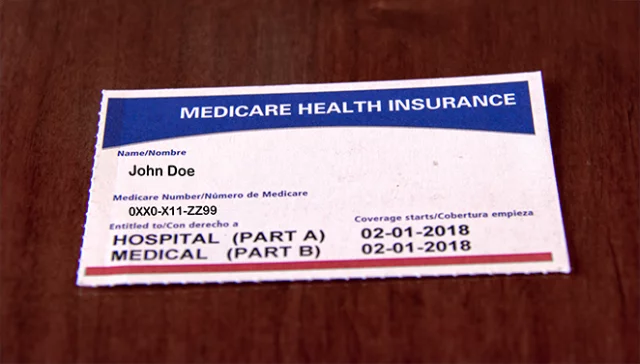Filter


New Retirees: Avoid Costly Medicare Sign-up Mistakes
To retire is to enter the unknown. Rick Fine has demystified one aspect of retirement: Medicare. As the director of financial planning for an advisory and investment firm, he has put together a list of what he sees as the five biggest mistakes new retirees make. I encourage you to read Fine’s well-written and detailed article about his five mistakes. Here are a few of the high points. Mistake #1: Thinking Medicare is free. It’s a great program but it will cost you $174.70 a month for Medicare’s Part B premium – and much more if you have high income. The Part A hospital coverage and Part B for physician services also have deductibles, as do some of the insuranc…
April 25, 2024
Why are Consumers So Glum? Inflation and High Rates
The recession that economists predicted has never materialized. Unemployment has been under 4 percent for more than two years, a low more characteristic of the go-go 1960s than modern times. But inflation began to ease up last year and remains well below the pandemic’s 9 percent peak, despite March’s unwelcome increase of 3.5 percent annually. So how to explain consumers’ sour mood? What else might be missing from our understanding of what is driving their views of the economy. A new study has an answer: high interest rates. The researchers make the case that consumer sentiment reflects not just inflation but also the current high interest rates on car loans, mortgages and credit cards that followed the Federal Reserve’s attempt…
April 23, 2024
Lack of Broadband Impedes Native American Access to Aid
During the pandemic, the U.S. Social Security Administration leaned into providing more services and processing applications online. But that has furthered the agency’s disconnect with Native Americans living miles from its field offices in rural areas with poor internet access. That’s one conclusion from a new study of the agency’s effectiveness in reaching Native American and Alaskan Native populations. The study included some analysis of data on these communities but was based largely on interviews with tribal leaders, community members, advocates, and the government staff who assist people applying for Social Security and other government benefits. Although tribal communities have a higher poverty rate than non-Native populations, their members are somewhat less likely to be receiving Social Security’s various benefits,…
April 18, 2024
What’s Stopping People from Applying for Disability
When people aren’t getting a government benefit they’re eligible for, the program’s goal of improving equity is compromised. Social Security’s disability insurance is an example. Roughly half of the 20 million adults who have a disability that limits or completely prohibits them from working are receiving the benefit. Not all of them would meet the program’s criteria for eligibility. But research based on a survey of workers and interviews with people with disabilities reveals some of the reasons they decide to not even try to apply. An analysis of the survey data shows that the decision is, to a large extent, a matter of having certain advantages. The non-applicants were a fairly small group. But they were more educated and…
April 16, 2024
Part D Plans Ramp up Restrictions on Medications
The Inflation Reduction Act signed by President Biden in 2022 somewhat limits how much retirees will pay out of their own pockets for medications this year. Next year, the law imposes a hard cap of $2,000. But while retirees are getting a reprieve from Congress, insurance companies are pushing in the opposite direction. According to research appearing in Health Affairs, insurers are tightening retirees’ access to some medications and increasing the number that are excluded from Part D and Medicare Advantage plan coverage altogether. Ultimately, this might either cost retirees more or, in the most extreme cases, prevent them from taking some necessary medications if they can’t afford to pay the cost themselves. The $2,000 annual cap on out-of-pocket drug…
April 11, 2024
Drop in Credit Score is Fallout from Older Partner’s Death
The negative financial consequences for individuals over age 50 who lose a partner are dramatic. A new study by Ohio State researchers found that the surviving partners see their credit scores drop by 10 points – a decline that persists for up to two years following the partner’s death. Further confirmation of the financial fallout is the rise in delinquencies on debt payments. If the late payments involve credit cards, which retirees frequently roll over to the next month, they can expose the fragility of the survivor’s finances. Anytime a spouse or partner dies, the survivor’s finances destabilize. The Social Security income coming into married households declines if the number of checks is reduced from two to one. Other researc…
April 9, 2024
National Retirement Plan Would Lift Low-income Saving
Virtually all high-income workers in this country are saving in some type of employer retirement plan. But only a minority in the lowest-income group are. A new study tackles this serious shortfall for disadvantaged workers in service, retail and other low-paying jobs. The crux of the problem, the researchers find, is that they lack easy access to a retirement savings plan at their jobs. This analysis, by establishing a direct connection between access to an employer-based plan and the act of saving, goes on to show that national legislation would greatly boost the financial security of low- and also middle-income workers by providing a retirement plan when, as is often the case, their employers do not. Automatically enrolling them would…
April 4, 2024
Delay Social Security? Not Everyone Can Do it
Financial advisers often encourage older workers to delay signing up for their Social Security as long as possible to maximize their monthly income. But several of our blog’s readers point out, rightly, that this isn’t always possible for people in physically taxing jobs. Blue-collar workers are in a real Catch-22, caught between the unforgiving financial demands of retiring and a body that can’t take any more work. “They were just worn out by 62, and continuing to work in their occupations would be exceedingly taxing and dangerous due to declining abilities,” he said. “Work like that can take years off a life.” But for another reader, financial security – his wife’s – was the primary consideration in deciding when to…
April 2, 2024
Rising Stocks, House Prices Boost US Retirement Outlook
While COVID was raging, the jump in house prices and a rising stock market were dramatically improving U.S. workers’ retirement finances. But the news is not quite as good as it appears, because the increase in house prices in 2020 through 2022, which continues today, was the largest single reason for the improvement. Yes, Americans are wealthier on paper, thanks to a combination of old mortgages with low interest rates and increasing house prices fueled by strong housing demand during COVID in suburban and rural markets. Among the narrower group of people who own their homes, the share of households at risk dropped sharply, from 34 percent to 24 percent. But it is also fairly unusual for retirees to capitaliz…
March 28, 2024
Bureaucracy, Paperwork Block Access to Government Aid
Seven million low-income Americans who would qualify for SNAP food stamps are not receiving them. And millions have fallen out of their state’s Medicaid coverage or Children’s Health Insurance Program since the federal guarantee of coverage during COVID expired last year. The bureaucratic hurdles, multiple-page applications, and layers of federal and state requirements cause many eligible people to give up on applying or, if they apply, to be rejected by government safety net programs for incomplete or improper applications. “It can feel like a full-time job getting on those programs and actually staying on them,” Pamela Herd, co-author of “Administrative Burden: Policy by Other Means,” said in this NewsHour video. Morgan Wingate, a single mother of three, said she could really us…


















